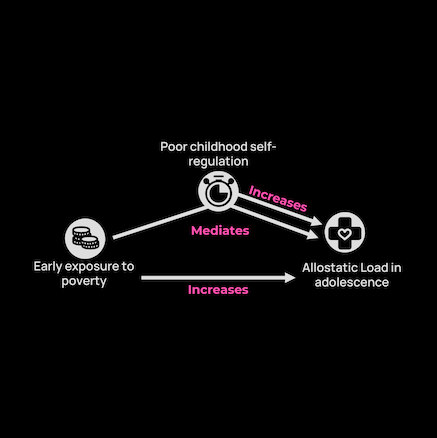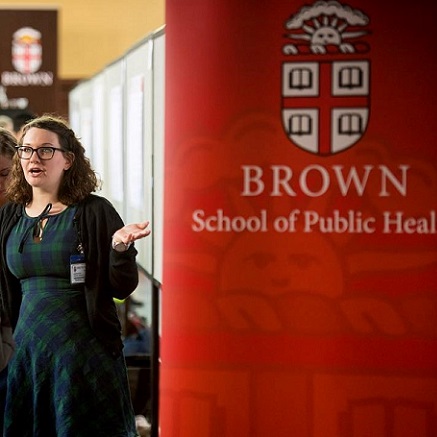Poverty, Self-Regulation, and Adolescent Health
During my PhD, I designed and carried out projects aimed at understanding how early-life stress, especially poverty and family adversity, shapes the development of self-regulation and health across childhood and adolescence. I utilized large-scale, longitudinal datasets and genetically informed designs to investigate how individual and contextual stress exposures influence youth outcomes through both behavioral and biological mechanisms.
I used data from the NICHD Study of Early Child Care and Youth Development (SECCYD) to examine how self-regulation mechanisms help explain the link between early poverty exposure and adolescent allostatic load.
In a subsequent project, I used a prospective, longitudinal parent-offspring adoption design to test how birth mother life stress and adoptive parental stress shape adolescent self-regulation.
My last dissertation chapter expands on this work by leveraging the Environmental Influences on Child Health Outcomes (ECHO) cohorts dataset to assess whether the developmental timing of childhood exposure to poverty (early childhood, middle childhood, adolescence) impacts adolescent emotional, behavioral, and physiological health outcomes, and whether family level factors (i.e., parental stress and adversity) moderate these relationships.



